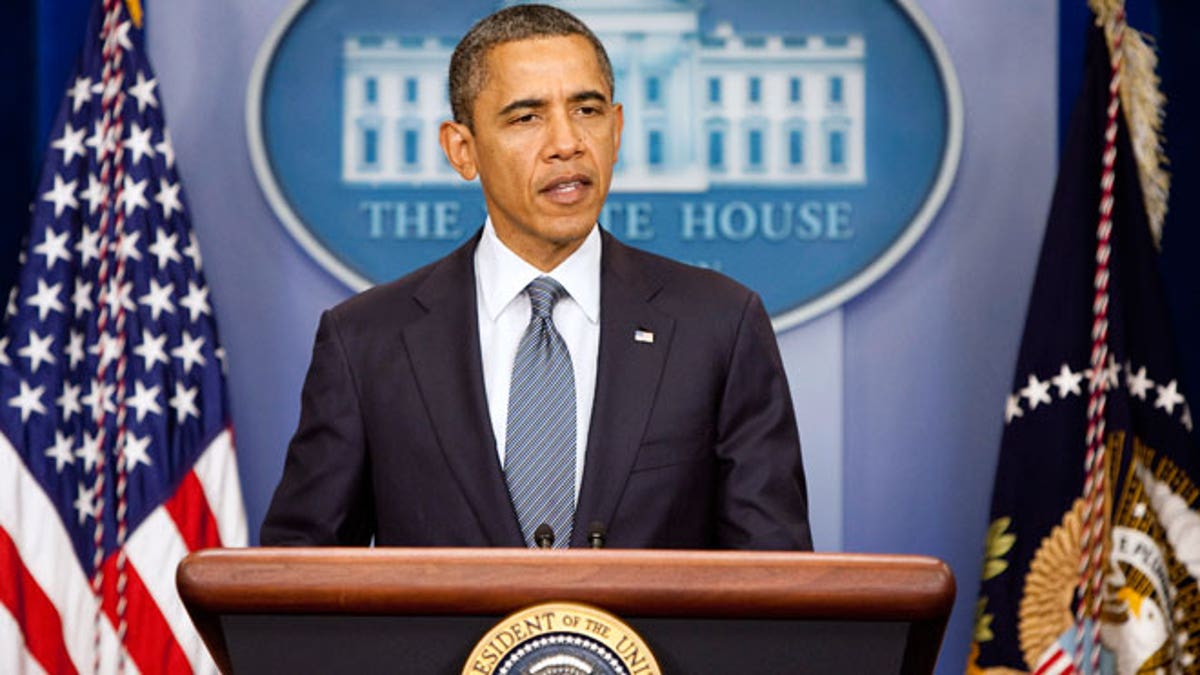
(Reuters)
U.S. President Barack Obama pressed European Union officials Monday to act quickly and decisively to resolve their sovereign debt crisis, which the White House said was weighing on the American economy.
After meeting European Council President Herman Van Rompuy and European Commission President Jose Manuel Barroso, Obama said he was keen to see the euro crisis end.
``I communicated to them that the United States stands ready to do our part to help them resolve this issue. This is of huge importance to our economy,'' Obama, seated next to the EU leaders, told reporters.
Obama did not say what kind of help Washington may be able to offer - a real question mark in light of the fiscal pressures gripping Congress.
A possible step would be to support more aid to Europe from the International Monetary Fund where the United States is the biggest shareholder. But the Obama administration may simply be offering advice on how to make tough political decisions as it did during the U.S. financial crisis.
White House spokesman Jay Carney said the IMF already has substantial resources and has a role to play in helping Europe, but suggested there would be no new U.S. money for the effort.
``The issue here is a European issue and Europe needs to act,'' he said.
Obama has been in regular telephone contact with German Chancellor Angela Merkel, French President Nicolas Sarkozy and other European leaders as debt woes have piled up in Greece, Italy and Spain, hurting stock markets and raising doubts about U.S. exports and growth.
U.S. Treasury Secretary Tim Geithner and top White House advisers took part in Monday's closed-door talks, the latest in a series of annual summits between American and EU leaders.
The meeting did not include Merkel, Sarkozy and other European heads of state who will ultimately need to make tough decisions to salvage the euro zone.
But Van Rompuy and Barroso wield influence as heads of key EU institutions at the heart of efforts to address the crisis, which has thrown the future of the 17-nation currency bloc into doubt at a moment of weakness for the global economy.
JOBS OBSTACLE
Avoiding contagion from Europe is critical for Obama, whose re-election prospects next November hinge on his ability to shield the American economy from another downturn and bring down the unemployment rate of 9 percent.
The Democrat was clear on Monday that he saw Europe's debt problems as an obstacle to his fight to boost hiring and help spur the U.S. economy ahead of the 2012 election.
``If Europe is contracting or if Europe is having difficulties, then it is much more difficult for us to create good jobs at home,'' he said.
So far, however, U.S. exports have remained strong in spite of the turmoil in Europe. Exports to the EU remained strong in the first nine months of 2011, up about 15 percent from the same period last year, U.S. data released this month showed.
Obama has previously said that resolving the debt crisis would require ``some tough decisions'' in Europe but has not spelled out precisely what those may entail.
Some in Washington believe the European Central Bank could be more active in the crisis by shoring up bond markets, though that is an unpopular view across the Atlantic.
Van Rompuy said it was wrong to suggest that Europe was the only drag on the global economy and said it was important for other economies to pitch in to boost growth.
In a joint statement after the meeting, the United States and European Union said they agreed on the need to work together with emerging economies to rebalance global growth.
They also said they were determined to see Iran comply with its international obligations related to its nuclear program, and Van Rompuy said the European Union was preparing new restrictive measures to further isolate Tehran.
The joint statement, issued hours after Brussels announced new financial sanctions on Syria, also urged Damascus ``to end violence immediately'' and permit a peaceful and democratic transition of government.
Catherine Ashton, the EU's foreign policy chief, and U.S. Secretary of State Hillary Clinton also took part in the talks which lasted just over two hours.
The relatively low-key meeting came one week after Obama returned from a trip to the Asia-Pacific region where he focused on increasing commercial ties.
EU officials were keen to stress that the U.S. and European economies now make up 50 percent of the world economy and 30 percent of global trade, and companies Microsoft, Pfizer, Deutsche Bank and Coca-Cola said there remained important business opportunities across the Atlantic even if the economies were growing slowly.




